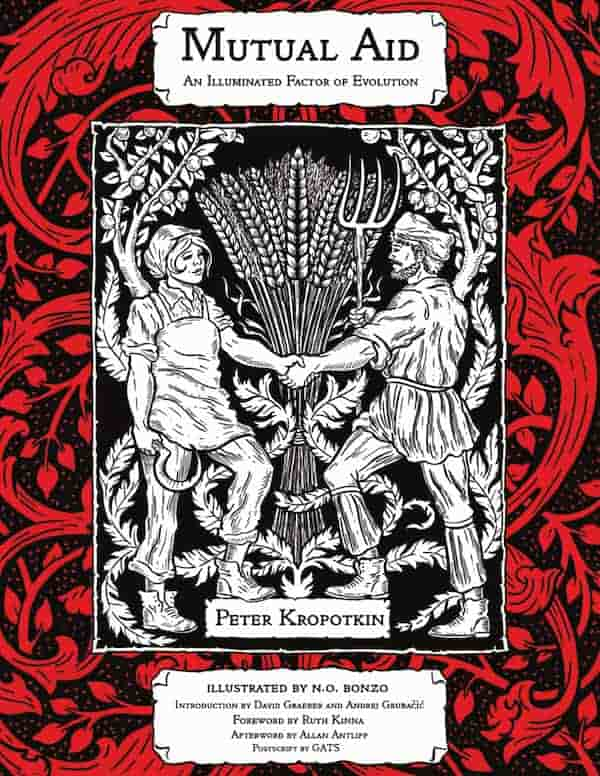In an explicit riposte to social Darwinists, Kropotkin argues against the theories that emphasize competition and survival of the fittest, and against the romantic depictions by writers such as Jean-Jacques Rousseau, who thought that cooperation was motivated by universal love. Instead, he spoke for an alternative school of Darwinism that emerged in Russia, emphasizing cooperation, not competition, as the driver of evolutionary change.
Note: it’s fitting that this edition has an introduction by David Graeber, because I came across it in the first place due to Graeber’s quote below:
Kropotkin’s actual argument is far more interesting. Much of it, for instance, is concerned with how animal cooperation often has nothing to do with survival or reproduction, but is a form of pleasure in itself. “To take flight in flocks merely for pleasure is quite common among all sorts of birds,” he writes. Kropotkin multiplies examples of social play: pairs of vultures wheeling about for their own entertainment, hares so keen to box with other species that they occasionally (and unwisely) approach foxes, flocks of birds performing military-style maneuvers, bands of squirrels coming together for wrestling and similar games…
Life is an end in itself, etc.
